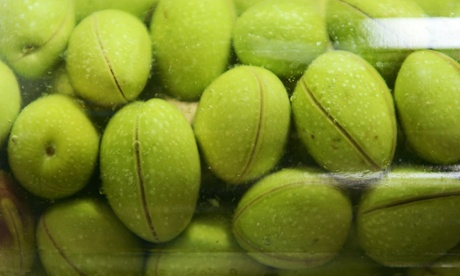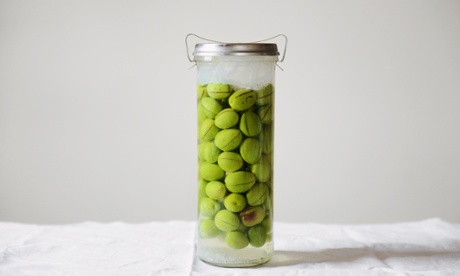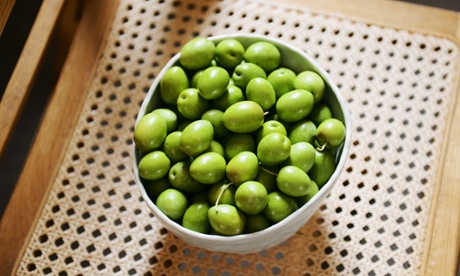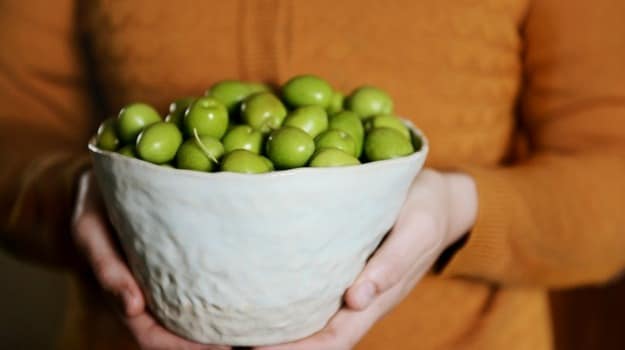Last week while driving through the very northern suburbs of Melbourne, I saw men selling boxes of green olives and red grapes in an old service station that had been abandoned and taken over by weeds. Cars were stopped, the produce was very fresh and cheap.
In our street the olive trees that grace the front yards of many house have turned a deep purple black. In other streets the olives among the silvery leaves are still hard and a pale green. Many of these suburban olives are never picked, others are picked green and brined, and some are left to ripen and pressed for olive oil.

The recipe below was given to us by a stallholder at the Queen Victoria Markets - an almost elderly woman, with a strong Portuguese accent.
I'm sure there are as many recipes for brining and curing olives at the market as there are stalls. In fact, she gave us two - one that was quick and involved changing the salty water daily, and this recipe for the lazy and patient.
This method meant the olives kept their vibrant green colour, whereas the quicker version meant the olives came out looking a dull green. I love the idea of preparing the olives and then waiting five months for the end of winter and the first hints of spring to crack open the jars and serve the olives. Once the olives are ready they can be marinated in oil, herbs, lemon and chilli.
When purchasing or picking olives for brining, choose olives that are firm, unblemished and unwrinkled.

Brined green Spanish olives
1kg of firm green Spanish olives
100g cooking salt
100ml lemon juice
100ml white vinegar
Tap water
Steralise two large jars (we used one-litre jars) and lids by washing in warm soapy water and drying in the oven. Score the olives with a sharp paring knife from the stalk to the base and back around to the stalk. Make sure you don't cut right through to the pit, just score the flesh. Place in a bowl. In the base of your jars place the vinegar and the lemon juice (50ml in each of each) and salt. Stir the mixture in each jar and then place your scored olives in each jar (500g in each). Cover the olives in cold tap water, leaving 5cm at the top of the jar.

The olives will want to float to the surface, so in a freezer bag add a little bit of tap water, tie a knot in the bag and place at the top of your jar on top of the olives and water (test that you can fit the lid on the jar before you tie the knot). This will stop the water evaporating and the olives at the top from oxidising.
Store the olives in a cool dark place for five to six months. Discard the brine. Wash the olives and test the taste. Re-brine if still bitter, but they should be ready. You can then marinate them in olive oil and lemon, or just place them in fresh salty water and enjoy.










